March 31
John Fowles
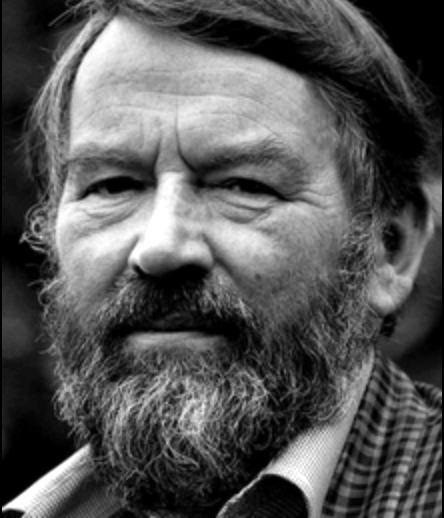
On this date in 1926, novelist John Robert Fowles was born in Leigh-on-Sea, Essex, outside London. After serving two years as a lieutenant in the Royal Marines, Fowles went to Oxford, where he graduated in 1950 with a degree in French. As a college student, he admired the French existentialists, particularly Camus and Sartre. Fowles lectured in Poitiers, France, then spent two years on the Greek island Spetses, teaching college English. There he met his future wife Elizabeth Christy, then married to a fellow teacher. From 1954-63, he taught English at St. Godric’s College, London.
The phenomenal success of his first published novel, The Collector (1963), permitted him the luxury of becoming a fulltime writer. The Magus, set on a Greek island with an English protagonist who teaches at a school, was published in 1965 and revised in 1977. (A 1968 film based on it was panned by critics, with Woody Allen quoted as saying, “If I had to live my life again, I’d do everything the same, except that I wouldn’t see ‘The Magus.’ “) These novels were followed by The French Lieutenant’s Woman (1969), Daniel Martin (1977), Mantissa (1982) and A Maggot (1985).
Fowles also wrote poetry and nonfiction. His book of essays, Wormholes, came out in 1998. The vivid The Collector, a disturbing tale of a young butterfly collector who decides to kidnap a woman he has a crush on, was made into a memorable film in 1965 starring Terrance Stamp. The French Lieutenant’s Woman, Fowles’ most commercial success, inspired a 1981 movie of the same name, starring Meryl Streep.
Fowles’ semi-autobiographical protagonist in Daniel Martin is described as an atheist. According to the Spring 1996 volume of Twentieth Century Literature, which was devoted to Fowles, he “repeatedly defined himself as an atheist.” In a New York Times interview with James R. Baker (“Art of Fiction”), Fowles said: “I stay an atheist, a totally unreligious man, with a deep, deep conviction that there is no afterlife.” (D. 2005)
“Being an atheist is a matter not of moral choice, but of human obligation.”
— Fowles, quoted in The New York Times Book Review (May 31, 1998)
Hypatia Bradlaugh Bonner
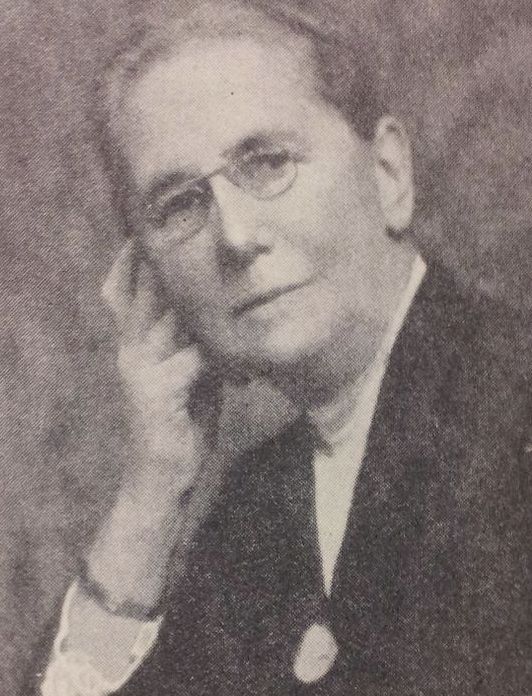
On this date in 1858, Hypatia Bradlaugh (later Bonner) was born in London. The namesake of the murdered pagan lecturer of Alexandria, she was the daughter of Charles Bradlaugh, who triumphed after a long battle to be seated in Parliament as an atheist. Matriculating at London University, Bonner became a teacher at the Hall of Science run by her father’s National Secular Society. When she married Arthur Bonner in 1882, they merged their surnames and had two sons, one of whom survived.
After her father died in 1891, she wrote his biography and was forced by constant slanders of deathbed conversions to correct the public record, even taking successful court action.
An ardent opponent of the death penalty, proponent of penal reform, peace advocate and feminist, Bonner lectured widely. She founded the Rationalist Peace Society in 1910. She edited a journal, The Reformer (1897-1904). She was part of the Rationalist Press Association, worked against blasphemy laws and was appointed justice of the peace for London, serving from 1922-34, as a reward for 40 years of public service.
Her books include Penalties Upon Opinion (1912), The Christian Hell (1913) and Christianity and Conduct (1919). In her final “Testament,” she wrote, “Away with all these gods and godlings; they are worse than useless.” D. 1934.
PHOTO: Bonner in 1929, five years before she died after surgery for abdominal cancer.
“Heresy makes for progress.”
— Motto of The Reformer, the journal edited by Bonner
Olive Schreiner
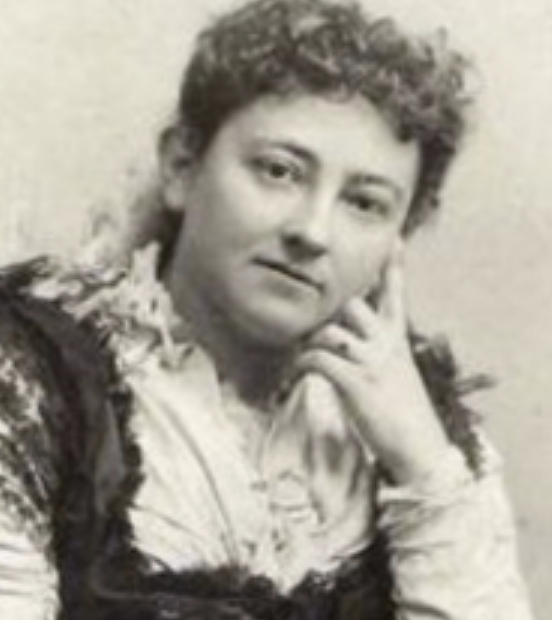
On this date in 1855, Olive Schreiner was born in Basutoland (now Lesotho), Africa, the daughter of a German father and an English mother, both working for the London Missionary Society. She was ninth of 12 children. Olive began working at age 13 as a governess, often in primitive conditions. She educated herself, reading scientists and freethinkers, and had saved enough money for passage for England within 10 years.
Her novel, The Story of an African Farm, about two children growing up in the African veldt, was written before she was 20 and published in 1883 under the pen name Ralph Iron. It has been called a “South African Wuthering Heights.” The sections detailing the internal struggle of the character Waldo (whose name was a nod at Ralph Waldo Emerson) poignantly describe the struggles she went through over her loss of faith after being raised in strict Calvinism. The novel, where nonbelief runs as a constant thread, caught the eye of reader George Meredith and was highly acclaimed upon publication and remains in circulation. Schreiner also wrote Dreams (1891), Trooper Peter Halket (1897) and Woman and Labour (1911).
In 1894 she married S.C. Cronwright. In England, she became friends with radicals such as Eleanor Marx and had a long-term correspondence with Havelock Ellis. After returning to Africa, she was at one time subject to martial law and her home was burned down by whites incensed over her position on race. A feminist and suffragist, she was a pacifist during World War I. (D. 1920)
“But we, wretched unbelievers, we bear our own burdens; we must say, ‘I myself did it, I. Not God, not Satan; I myself!’ “
“This thing is certain — he is a fool who says, ‘No man hath said in his heart, There is no God.’ ”— Schreiner, quotes from characters in "The Story of an African Farm" (1883)
Matt Dillahunty
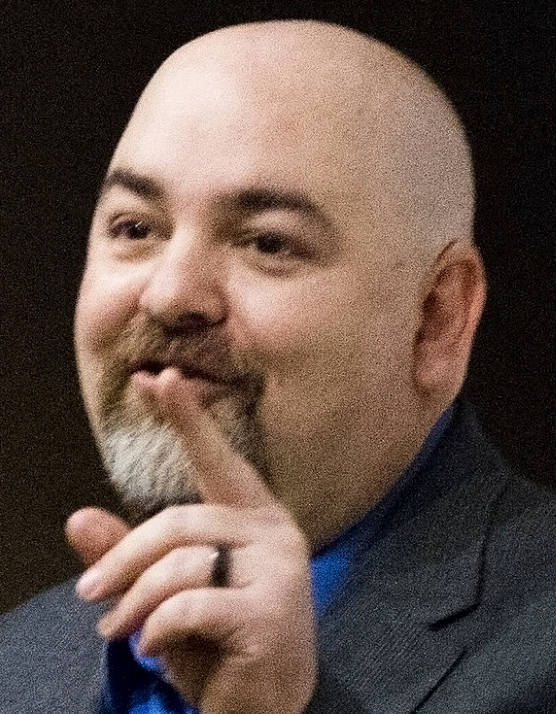
On this date in 1969, public speaker and internet personality Matthew Wade Dillahunty was born in Kansas City, Mo. He was raised in a Southern Baptist home. He was a fundamentalist Christian for over 20 years, but after serving from 1987-95 in the U.S. Navy and working in high tech, he found a need to reaffirm his faith in order to continue a life with the ministry. This attempt to fortify his faith turned into a long-term investigation to understand reason in terms of his religion.
From 2006-13, Dillahunty was president of the Atheist Community of Austin, Texas. The ACA is a nonprofit organization with a variety of goals including developing and supporting the atheist community, providing opportunities for socialization and friendship and working with like-minded organizations to oppose discrimination against atheists. Not only does the ACA serve its local community, it provides an online portal of free resources accessible to the community at large.
One of its most-effective outreach projects is “The Atheist Experience” TV show, a weekly program geared towards a nonatheist audience. Dillahunty has been hosting the show since 2005 and was a co-host of “The Non Prophets” internet radio show prior to that.
He also founded The Iron Chariots, an online encyclopedia intended to provide information on philosophical apologetics and non-apologetics. Additionally, he contributed to the novel Deconverted: a Journey from Religion to Reason (2012), an autobiographical account of a Protestant Christian who eventually creates a popular online atheist community called The Thinking Atheist. Dillahunty travels nationwide as a member of the Secular Student Alliance’s speaker’s Bureau. In 2012, he won the Catherine Fahringer Freethinker of the Year Award from the Freethinkers Association of Central Texas.
In Episode 771 of “The Atheist Experience” (July 22, 2012), Dillahunty called the Catholic Church “a nonsensical organization; a bunch of fat lazy do-nothings who have been living off the public dole for centuries. The fact that they can do good is a testament to the fact that there are good people who will do good. But the organization is corrupt, it is poison to its core and it serves no essential good purpose – no true purpose. It’s lie after lie, promoting harm to real people …”
In 2011 he married Beth Presswood, an “Atheist Experience” colleague and co-host of “The Godless Bitches” podcast. They divorced in 2018.
PHOTO: Dillahunty in 2014 at SashaCon; Mark Schierbecker photo under CC 3.0.
“Faith is the excuse people give for believing something when they don’t have evidence.”
— Dillahunty, "The Atheist Experience" Episode 696 (Feb. 13, 2011)
Dick Hewetson
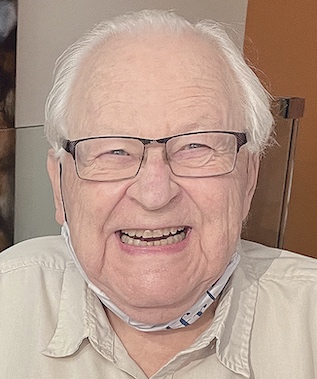
On this date in 1930, gay rights activist Richard Walton “Dick” Hewetson was born in Harvey, Ill., to Clara (Larson) and Reginald Hewetson. His paternal grandfather was an Episcopal priest, a vocation he later pursued after growing up and attending public schools in the Chicago area and Minneapolis.
The family struggled financially after his father lost banking jobs during the Great Depression. The family moved to Minneapolis when Hewetson was in second grade. When he was in junior high, his mother decided they should start attending an Episcopal church. Before he graduated from high school in 1948, he had jobs washing dishes in restaurants.
After graduation, he got a job with the Milwaukee Road freight traffic department. A relationship with a girl he’d been dating since high school fizzled. He felt relieved it was over. But while he was unable to succumb to the blandishments of female companionship, he fell prey to his religious impulses and embarked on a journey leading to priesthood in the Episcopal Church, where he had been confirmed and served as an altar boy.
He received a B.A. from the University of Minnesota and an M.Div. from Seabury‑Western Theological Seminary in Evanston, Ill., in 1957. “I now realize that my motives for going into the priesthood were very subliminal. It was a place to ‘hide’ and be considered all right as an unmarried man. I also thought that if I had enough faith, my homosexuality would fade away,” Hewetson said. (Freethought Today, Nov. 9, 2022) His speech to FFRF in 2000 aptly sums up his feelings.
He served parishes in Minnesota and Wisconsin before “awareness of my sexuality led to a mental breakdown in 1967. This led to my leaving the parish ministry and taking a job with the Minnesota Department of Employment Security. I continued to fill in on Sundays for Wisconsin churches when the local clergy were vacationing, or there was a temporary vacancy. Some of these vacancies were because of misbehavior or alleged misbehavior of the local priest. I found the coverup by the church disgusting.” (Ibid.)
Coming to terms with his sexuality had morphed into strong doubts about religion and, while in his early 40s, leaving the church in 1972. As a state employee, he was active in the American Federation of State, County and Municipal Employees, the first U.S. union with anti-discrimination protections for LGBTQ+ people.
“In 1978, I joined the Freedom From Religion Foundation because it worked for the separation of church and state — keeping religion out of government. Most members were atheists, and when I realized what that meant, I realized that I had always been an atheist!” (Ibid.) His familiarity with FFRF started when his partner in life David Irwin saw Anne Gaylor on “The Phil Donahue Show.” They started attending annual national conventions and Hewetson served on the board of directors for years. He and Irvin founded the Quatrefoil Library in St. Paul, Minn., in 1983.
Now in Minneapolis and still operating as of this writing in 2025, Quatrefoil is a member-supported library, cultural center and safe space for the LGBTQ+ community. The library houses over 15,000 books, 7,000 DVDs, collections of first editions and rare books and books in braille. It takes its name from the novel “Quatrefoil: A Modern Novel” by James Fugaté. The library announced the creation in 2019 of a scholarship for LGBTQ+ students attending college in Minnesota.
He moved to San Francisco after retirement in 1992, where he facilitated programs for Elderhostels, FFRF, New Leaf Outreach to Elders, the Harvey Milk Civil Rights Academy and the Center for Learning in Retirement. FFRF gave its Freethinker of the Year Award that year in San Antonio to the Weisman family, which had just won a Supreme Court case barring prayer at high school graduation. “A clever journalist for the San Antonio paper wrote that atheists were gathering at Christmas time next to a Catholic shrine in a city named for a saint to give an award to three Weismans,” Hewetson quipped. (dickhewetson.net)
He remembers an early convention: “At the banquet we sat at a round table with six other people. When they realized that David and I were partners, they were thrilled to talk with us. None of them had ever had a chance to talk with a gay couple, and they were extremely supportive. Another feeling of belonging swept over me.” Vocalist Kristin Lems looked out over the audience, expressing amazement that this was the first convention she’d ever entertained at on a Saturday night where everyone was sober. “Church conventions were never like this!” (Ibid.)
He died at age 95 by physician-assisted suicide in hospice at Brookdale Senior Living in San Jose. FFRF Co-president Dan Barker spoke with Hewetson, cheerful as always even though the impending darkness loomed, just hours before his scheduled departure. He asked that any memorials be directed to FFRF and the Quatrefoil Library. (D. 2025)
“I remember the last Sunday I was in church — I could not wait for that service to end. I literally ran down the aisle out of church and have never been in one since, except for funerals.”
— Hewetson speech in San Francisco (Freethought Today, June/July 2000)
